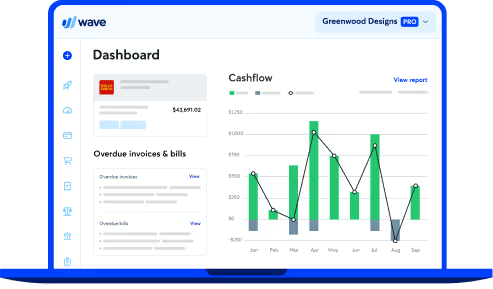
Your guide to a happy holiday payroll
The holiday season is right around the corner. And that means you need to be prepared for all the hard work that comes with it. We’ve got some great tips for streamlining your holiday payroll, so that you can focus on the many other things you’ve got going on.
Hiring seasonal workers
It’s not only retail stores and restaurants that can benefit from extra help at this time of year. Most businesses see a surge in demand from customers around the holidays, from health practitioners and hairdressers to event planners and designers.
Once you’ve made the decision to hire a few new employees, you’ll need to make sure they’re set up the right way in your payroll software. Depending on your business needs, you might be tempted to try the quick fix of hiring contract workers. But if you’re relying on the same pool of repeat talent year over year, there’s a definite advantage in bringing them on as regular employees.
But wait, how is that simpler? Well, you actually save tons of time on paperwork and onboarding if you have the ability to pause and unpause that person in your payroll system. It beats the extra effort that goes into constantly bringing on new contractors. And it’s extra beneficial if your payroll system is pay-as-you-go so you won’t be charged in slower months where you don’t have the need to run payroll.
Calculating stat holiday payments
So you’ve found the right talent and they’re all set up in your payroll system. What’s next? You need to make sure you pay them on time, calculate their payroll tax, and most importantly, figure out their stat holiday pay. We’ve written before about the pitfalls that can happen by manually calculating payroll tax instead of automating it.
Well, it turns out that holiday stat pay can be even more complex. The rules vary between each province in Canada as well as the United States, and the last thing you want to deal with at this time of year are errors that could have been avoided. A payroll system that can automatically calculate your region’s stat holiday pay would save you tons of worry.
Deciding on bonus timing
A yearly bonus is a great incentive to help employees hit a certain goal for your business. It can also be given out based on outstanding performance reviews. Or simply because you value the hard work and loyalty that your staff members show you on a daily basis.
First off, just a reminder that bonus amounts are taxed because they count as wages. Secondly, it’s up to you to determine when to add the bonus payment to a payroll depending on your bookkeeping.
If your profits are looking good for 2017 and you want to add the amounts to your annual taxes, then the bonus needs to be on a payroll before Dec. 31. Alternatively, you can park the funds for sometime in early 2018 if you want to wait to add the amounts to your balance sheet.
Wrapping up the year
We hope this has given you a good head start on some end-of-year issues. Now you can leave the stress behind when it comes to payroll this holiday season and spend more time celebrating with family and friends.
Want to keep all the elves in your workshop happy this season? Automate their payroll and stay organized with Payroll by Wave. Start 2018 with 2 months free!
Limited time offer. Activate before Dec. 31, 2017, to get 2 months free starting Jan. 1, 2018.
(and create unique links with checkouts)
*While subscribed to Wave’s Pro Plan, get 2.9% + $0 (Visa, Mastercard, Discover) and 3.4% + $0 (Amex) per transaction for the first 10 transactions of each month of your subscription, then 2.9% + $0.60 (Visa, Mastercard, Discover) and 3.4% + $0.60 (Amex) per transaction. Discover processing is only available to US customers. See full terms and conditions for the US and Canada. See Wave’s Terms of Service for more information.
The information and tips shared on this blog are meant to be used as learning and personal development tools as you launch, run and grow your business. While a good place to start, these articles should not take the place of personalized advice from professionals. As our lawyers would say: “All content on Wave’s blog is intended for informational purposes only. It should not be considered legal or financial advice.” Additionally, Wave is the legal copyright holder of all materials on the blog, and others cannot re-use or publish it without our written consent.


























